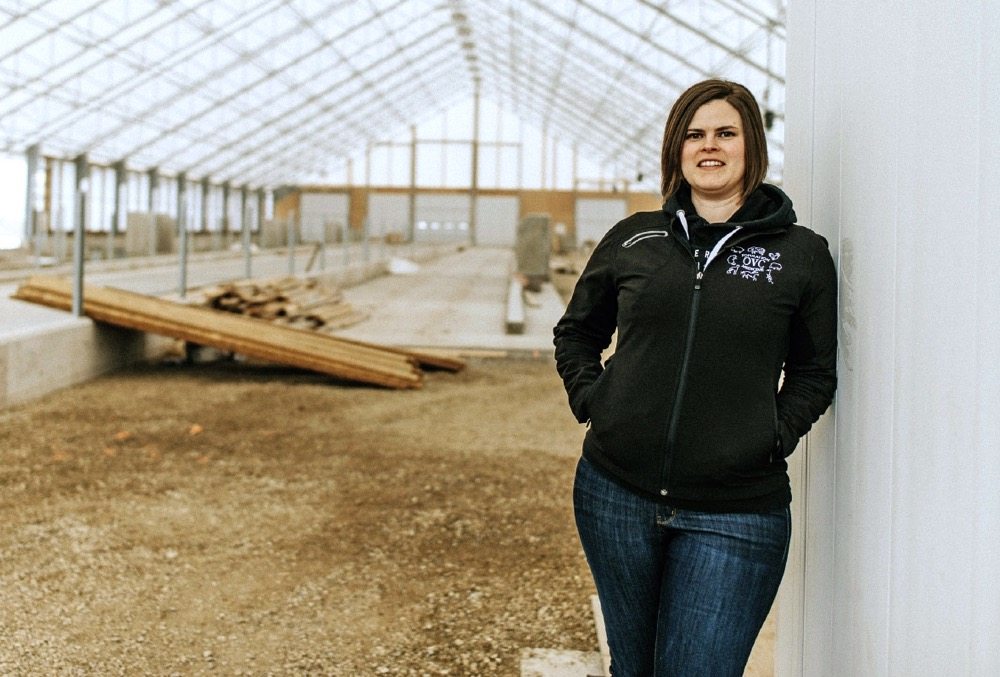Divorce is one of the biggest threats to farm family legacy,” says Manitoba-based farm adviser and coach Elaine Froese. “We need to start talking more about how to prevent the breakups and create more makeups.”
Farms and divorce can be a toxic mixture. Tradition, culture, religion, isolation, community gossip, strong families — they all come together to add to the stress, which then gets top loaded with big assets.
Two Statistics Canada numbers are especially disturbing. First, 41 per cent of marriages fail. Second, couples most often get divorced in their 40s.
Read Also

Sibling squeeze part 6: The emotional stakes of a family legacy
The final instalment in a six-part series exploring the challenges of sibling conflict and the effect it can have on…
They’re disturbing because for farmers, that’s also the point in their careers when their assets are starting to solidify, grow and gather steam… much of it thanks to the multiple generations of sweat, blood and brains that the family has injected into the home operation.
That means it’s even more important to discuss how assets, liabilities and growth will be divided among all the parties if something goes wrong, especially as farm sizes increase and new family members become a part of the businesses, either directly or indirectly.
On many farms, succession naturally leads to discussion about the four Ds, death, disability, disagreement and divorce.
Even if you’re not doing succession planning, however, creating a pathway for your business in case of divorce should be done before problems arise, and it should be guided not only by your caring and deeply held family values, but also by good legal and accounting advice. In this area, always insist on advice from a trusted lawyer, someone who will consider all implications.
In the eyes of the law, after all, marriage is essentially a legal contract dealing with the property rights of two people. Divorce is a termination of that contract. For farmers, however, that property can be worth millions, and its emotional value is at least that great.
Keep in mind, too, that the specifics of separation law vary from province to province, and the laws are complicated. And of course, each case is unique. But the overall legal framework governing divorce in Canada is based on the belief that value created or property acquired during the relationship should be equally shared on separation.
But farming has its own complexities, says John Mill, succession expert and tax lawyer based at Windsor, Ont.
To begin with, all parties should understand that in law, the term property means everything that can be transferred, and that in a farm context, this can involve things as complicated as shares of a family farm corporation or quota, or land, inventory (think crop in ground), equipment or homes, whether in your own name or part of your farm corporation.
Then there are other layers of legal complexity. For example, in Ontario any money received (or that you have a right to get eventually) as a result of a personal injury, like a car accident or money that you received from an insurance company because someone died, isn’t included as property, so it’s important that you be open and candid with your lawyer.
But this isn’t the fundamental farm concern. “In a family farm we’re trying to protect the family aspect of the farm itself,” Mill says.
In fact, on the farm, you may want a specific agreement to acknowledge that the family intends to keep the farm in the family for generations.
The conversation can start by everybody knowing the value of the property the spouses own on the date they get married. Then everyone also needs to understand that this foundation isn’t part of the property that would be shared if the marriage doesn’t succeed.
Today, most divorces are settled by negotiation between the two parties; they tend not to be settled by a judge.
Farmers need to know up front that while this has advantages, it also has risks. Too often when marriages break down, negative emotions carry the day and former spouses are intent on trying to gouge each other, or people just want out so badly they walk away without their fair share.
Both can be avoided with some smart, caring preplanning.
That begins by learning how to talk with a positive attitude to ensure fairness to spouses and to ultimately take care of their children in a splitup. Don’t let your default position be to hide behind the righteousness of keeping the family farm no matter what. Conversely, don’t sign anything that might compromise your ability to survive financially if the marriage does end.
Being realistic is being loving. “Marriage breakdown is always a possibility,” says Barrie Broughton of Lethbridge, who practises tax, corporate and estate-planning law in the heart of the capital-intensive irrigated farming area of Alberta.
Broughton says the law will not allow a person’s legitimate interests to be ignored, so the goal is to look at ways to accommodate those interests without causing the farm to be split up, or imposing an unsustainable financial burden. “We have a surprising number of marriage breakdowns that are handled quietly and in a respectful manner, maintaining a large degree of family harmony,” says Broughton.
The following may mitigate the damage a divorce could do to your farm. Although not totally comprehensive or applicable to all cases, this list is a starting point to launch your planning and thinking process.
Matrimonial home
The family home is an exception to rule that the growth in property value will be equally split. The full value of the family home must be shared equally, even if one person owned the home before they got married, received it as a gift, or inherited it.
This matrimonial home may include the land it’s sitting on even though only a small part of the residence was sometimes used for the business’s office.
If the farm property has been purchased with inherited funds and kept separate from family members, however, it might not be considered part of the matrimonial home. Find out up front, and be aware of the potential implications.
Another complication is that when money is put into the family home, it must be shared. So the value of renovations is shared even if that money came from a gift, an inheritance or other property that otherwise wouldn’t have to be shared.
To date, the rules for the matrimonial home do not apply to common-law spouses. A common-law spouse does not automatically have the right to stay in the family home if it’s not in his or her name. Also, if one common-law spouse owns the home they can sell or mortgage it without the other spouse’s permission.
Co-hab agreement
People often think they need a cohabitation agreement when they move in with someone in a romantic relationship, but the labelling around this often gets fuzzy. Remember, living together for many years, having children together, or referring to each other as “husband,” “wife,” or “spouse” do not make two people legally married to each other.
It can be hard to get everyone to see the benefits of preplanning for something negative, i.e. for splitting up. However, a cohabitation agreement can certainly clarify roles and expectations around the relationship and the home and farm.
Statistically, cohabitating is less stable than marriage. In past, the matrimonial property act didn’t apply, but the rules, definitions and precedents about cohabitating have been changing.
Ask your lawyer what living together on your farm might mean in your specific situation. For example, if that person is going to work on the farm, should they be paid and should their pay be documented?
You also should check with your accountant if you’re going to move in together, since you’ll be considered common-law for taxes after a certain period of time, depending on where you live.
Prenuptial agreements
Prenuptial agreements are basically a way of negotiating a divorce settlement ahead of time, before you even get married. Each party must have their own independent lawyer and many of those lawyers tend to tell the person marrying the farmer to not sign the contract.
Basically a prenup agreement lists the assets each party brings into the marriage with an agreed value, and an agreement that if the asset increases in value, then the increase will be divisible providing the marriage lasts a specified number of years. A prenuptial agreement can be modified if both partners agree, even after they marry, or you can write one while married, called a postnuptial.
If you don’t want to have to sell off a particular parcel of land to pay out the other spouse in case of a divorce, then an agreement might be of benefit. When individuals with large interests in separate assets are planning to marry, prenuptial agreements can help achieve clarity and trust, which helps dispel suspicion. On the other hand, however, the discussions can sometimes be very hurtful and add stress to new family relationships.
If the family farm corporation owns the home, or if it is on a large property or the property has a barn or shed on it, it can potentially be really problematic.
One way to make it seem a little fairer is to value the matrimonial farmhouse, like a house in town, on the list of assets and to have cash settlements for the spouse written right in the agreement.
These agreements can help reduce the impact of divorce, but if not handled properly, they can also cause more problems. “The term prenup has too much baggage: images of the gold digger versus the controlling patriarch. A better name would be Family Farm Legacy Agreement,” says Mill.
Inherit property
Michael Bondy, a chartered accountant in London and national director of succession planning with Collins Barrow, often recommends against transferring farms or farm shares to a child until after marriage, and then for the parents to gift the assets and do a gift agreement to exclude the assets and the income from them from those that qualify as marital assets.
“This and other reorganizations and structures may remove the need for a prenup,” says Bondy.
Before you get married, also ask your lawyer to explain the rules around inheritance. Under family law, if the property was transferred as a gift or an inheritance during marriage, it’s often excluded from being divided. However, you have to be able to prove it.
This can get a little messier with property held in joint names, even if it was inherited, so farmers again should seek legal advice before transferring property.
To protect the farmland from divorce, instead of building a house for your child on an existing farm parcel, a “gift” might be better protected via a subdivided acreage with an agreed value as of the date of the gift. Alternatively, you might consider formally lending the funds to buy land and letting the couple buy their own home so everything is written down.
Gift shares
Similarly, a strategy that veteran farm accountant Mike Bossy, president of BNG in Tillsonburg, Ont., has used to potentially avoid spousal ownership problems is to issue common (growth) shares to the parents, with these then gifted to their farming son or daughter as “excluded property.” This excluded property does not come under the definition of net family property in a divorce because it was gift from parents.
If that farming child dies at an early age, he or she can bequeath those shares back to their parents. All of this happens tax free in Ontario, says Bossy.
Although this method avoids the daughter-in-law getting the farm assets, it doesn’t consider her contribution or her future needs. With this plan, you might want to include an insurance policy listing the spouse as the benefactor, says Bossy.
Farm financial adviser and succession specialist Len Davies also favours the use of gift shares.
“The gifting of common shares after marriage is always my first choice,” says the Ontario-based Davies. But the overall agreement still needs to be fair if there is to be an amicable divorce. “The gift after marriage protects property,” Davies explains, “but what stops the departing spouse from claiming their ex is actually making $150,000 per year when they may not be?”
Davies also always recommends an agreement regardless, emphasizing fairness while protecting the farm.
Trusts
A trust can be one of the strongest ways to protect the farm assets from getting caught up in a divorce. Parents put a farm’s common shares in a trust for their son or daughter, making them the beneficiary of that trust. However, the “child” doesn’t officially own the shares, so they don’t have to give half to their spouses, even if they get divorced.
Generally, trusts are deemed to dispose of certain properties at fair market value 21 years after the day the trust was created, however. Also, they can be costly to maintain.
Unanimous shareholder agreements
Many farms use a corporate structure. In addition to the other reasons to use a corporation, the unanimous shareholders’ agreement can be used for a layer of protection for the farm in the event of a marriage breakdown or other unexpected developments. “With a well-crafted shareholders’ agreement, divorce doesn’t necessarily have to financially cripple the farm business,” says Broughton.
For example, the shareholders’ agreement (SHA) can stipulate that on leaving, a shareholder must give one year’s notice, with payment over 10 years at zero interest.
Also, if the divorcing parents share the goal of preserving the asset for the children, agreements can be written so the departing spouse gets or retains shares, with the shares ultimately ending up with the children of the marriage. The SHA can ensure the decision control remains with the farming spouse. Keep in mind that shareholders can only vote for directors and dividends, and to succeed in such a vote requires a majority. As long as majority control remains with the farm family, it may not matter if the former spouse owns some shares.
Sometimes, departing spouses need the security of a steady cash income, and retaining shares instead of receiving a cash buyout can be better for them. In those cases, the separated and divorced spouses are quite content to remain as a shareholder and receive the dividend income.
“In some cases we have spent generations creating a viable farm, and a Unanimous Shareholders’ Agreement is one of the tools we use to insulate the farm from adverse events,” says Broughton.















